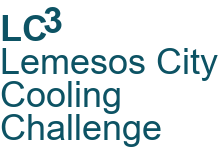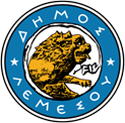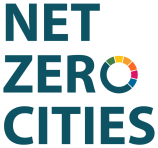The project "Cooling Lemessos - LC3" was implemented from June 2023 to June 2025. Throughout this period, the project partners engaged in a coordinated collaboration, the outcomes of which are presented in the following deliverables.
WP1 - Stakeholder Engagement as agents of change: Co-design solutions workshops and Lemesos Commons
WP1 - Stakeholder Engagement as agents of change: Co-design solutions workshops & Lemesos Commons |
D1.1 Detailed co-workshop methodology (in Greek) Workshop activities and material |
A1.1.1 Develop co-workshop methodology (Learning design) |
A1.1.2 Prepare co-design solutions workshops: Learning activities and material |
D1.2 Internal co-workshops: Bootstrapping Solutions and trained facilitators, project and CoΛ staff |
A1.2.1 Train workshop facilitators |
A1.2.2 Project staff workshops |
A1.2.3 CoΛ staff workshops |
D1.3 Co-designed solutions for energy efficiency, RE energy generation and NBS, smart financing |
A1.3.1 Owners participatory solution Co-design workshops |
A1.3.2 Professionals participatory solution Co-design workshops |
A1.3.3 Organized Civil society participatory solution Co-design workshops |
A1.3.4 Citizens-at-large participatory solution Co-design workshops |
Α1.3.5 Participatory solution Co-design workshops for smart financial instruments |
D1.4 MEL from Lemesos Commons |
Α1.4.1 Monitor, reflective learning, connection to project execution |
Α1.4.2 Interaction with, Listening to and learning from citizens & stakeholders: Online, web, social |
Α1.4.3 Lemesos Commons operation |
WP2 - Urban living lab experiment for building energy-saving, RE, and nature-based small open spaces interventions
D2.1 Building energy efficiency pilot interventions results |
A2.1.1 Select buildings, contextualize solutions, match, obtain agreement |
A2.1.2 Implement: detailed design, procure, train, intervene |
A2.1.3 Monitor/correct/conclude: lessons learned/report (scalability, transferability -conditional) |
D2.2 Small and very small Open spaces: RE pilot results |
A2.2.1 Select open spaces, contextualize solutions, match, obtain agreement |
A2.2.2 Implement: detailed design, procure, train |
A2.2.3 Monitor/correct/conclude/report |
D2.3 Small and very small Open spaces: NBS pilot results |
A2.3.1 Select open spaces, contextualize solutions, match, obtain agreement |
A2.3.2 Implement: detailed design, procure, train |
A2.3.3 Monitor/correct/conclude/report |
D2.4 R&I results from specific interventions |
A2.4.1 From TRL4-6 to TRL 6-8, small scale |
WP 3 – CoΛ capacity building, regulatory framework reform and social alliances for change
D3.1 CoΛ capacity building |
A3.1.1 Building CoΛ capacity for climate-friendly changes |
D3.2 Regulatory framework reform |
A3.2.1 Revise regulatory environment for City competences |
A3.2.2 Drafting new net-zero building code |
A3.2.3 Pass and implement regulatory proposals |
D3.3 Social alliances for change: Interaction, listening & learning |
A3.3.1 - Leveraging citizen support |
A3.3.2 - Involving the private sector including banks |
A3.3.3 – Stepping beyond Lemesos |
A3.3.4 - Education and Training for green jobs. Workshops for retraining professionals |
WP4 – Governance, Impact and MEL
D4.1 carbon footprint and emissions impact monitoring |
A4.1.1 Baseline and monitoring Scope 1-2 emissions |
D4.2 MEL (Monitoring, Evaluation, Learning) |
A4.2.1 Monitoring intervention impact to microclimate |
A4.2.2 Monitoring impact to social attitudes and behaviors (participation/resistance, jobs …) |
A4.2.3 Assessing transferability and scalability through similar city alliance |
D4.3 Project governance |
A4.3.1 LC3 project coordination team |
A4.3.2 LC3 project monitoring committee |
A4.3.3 LC3 project conflict resolution committee |






